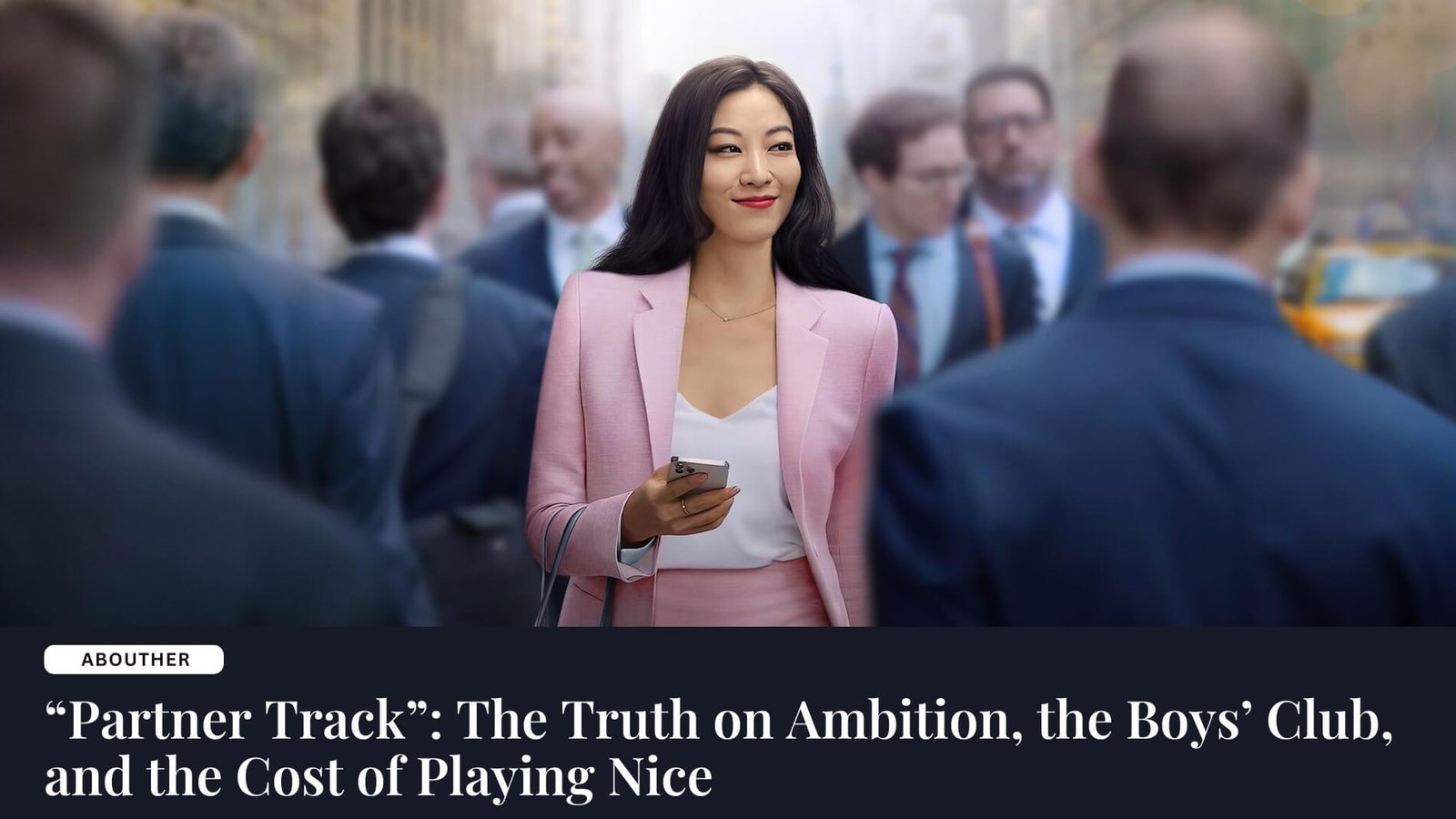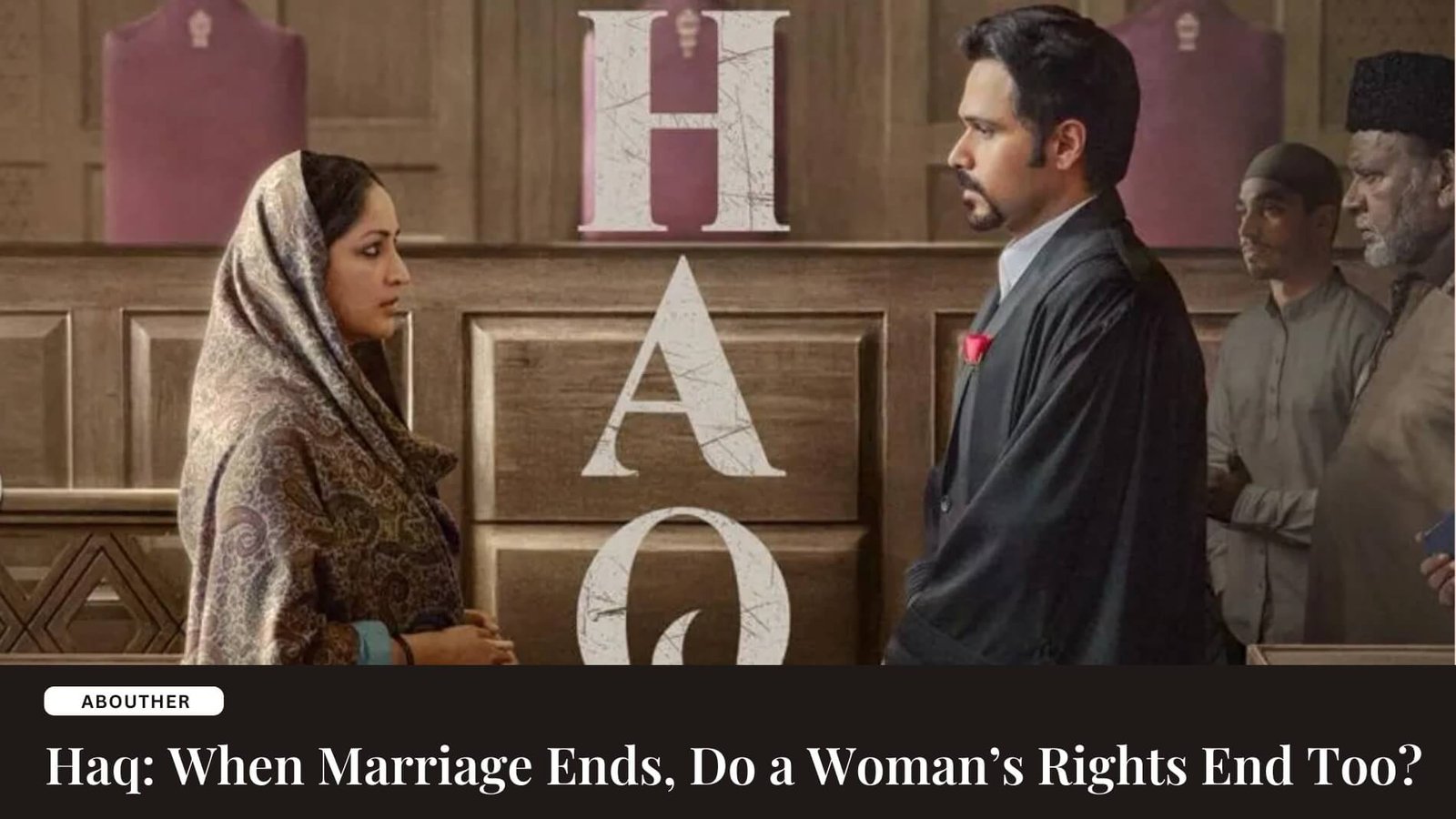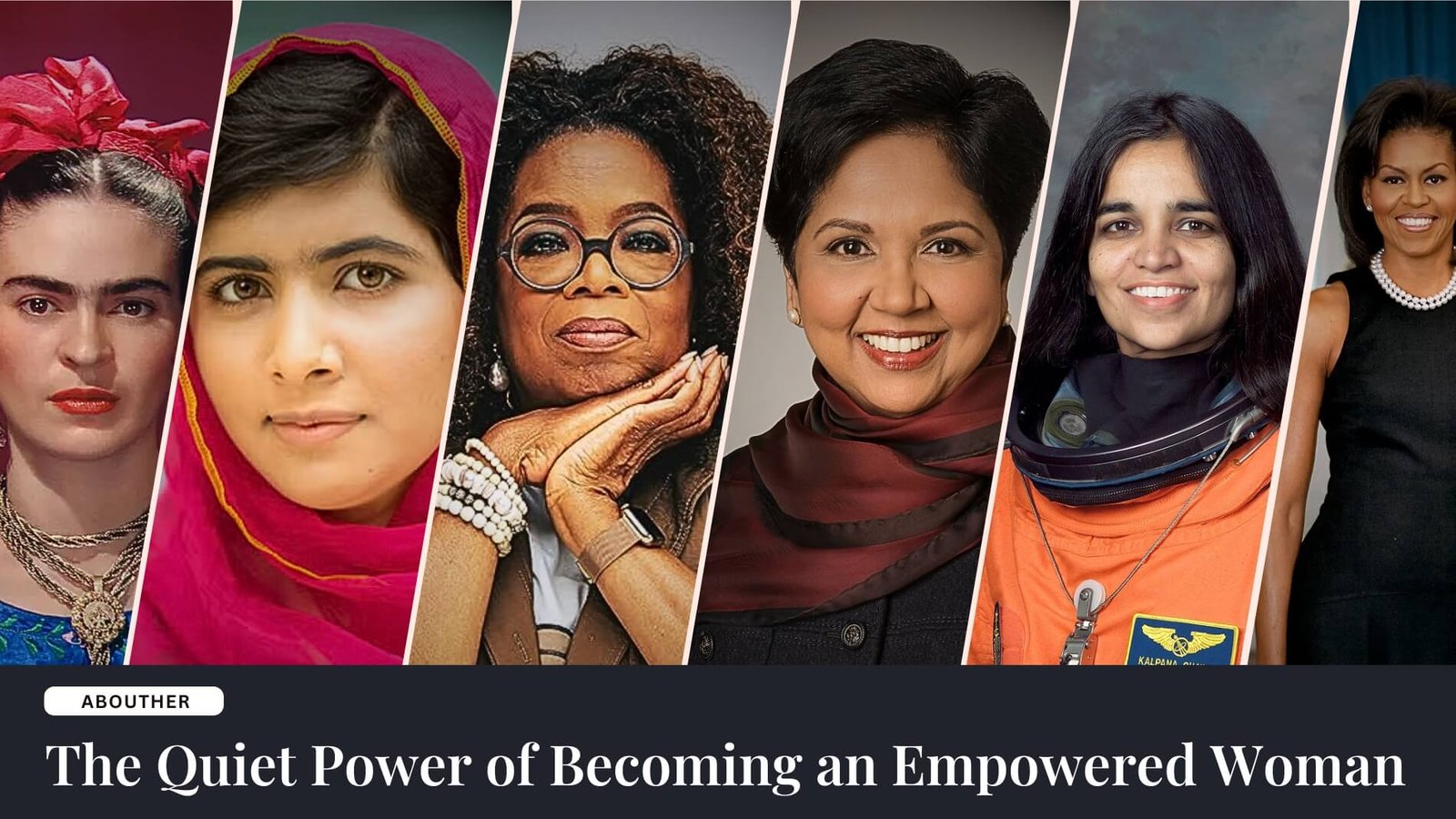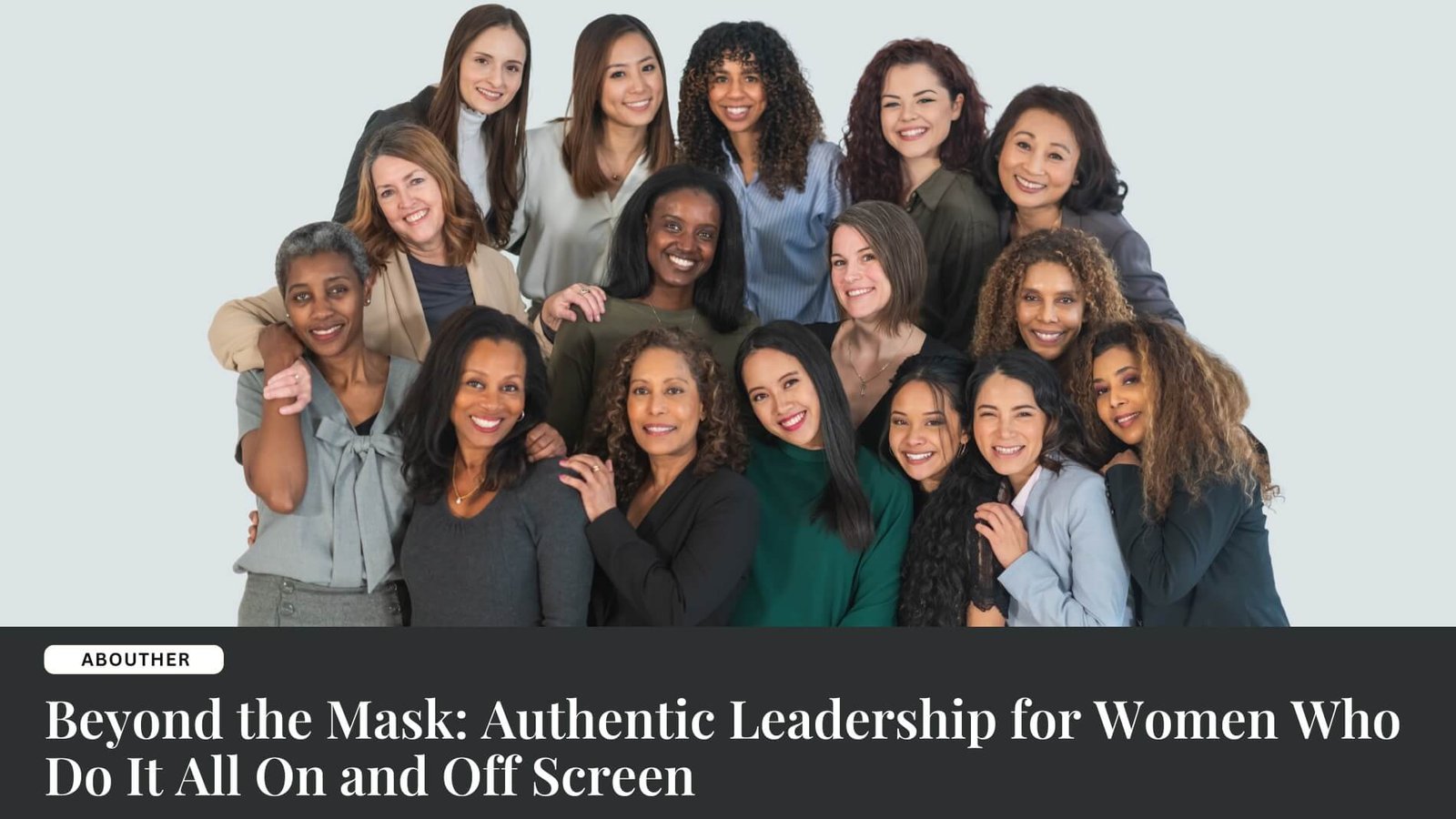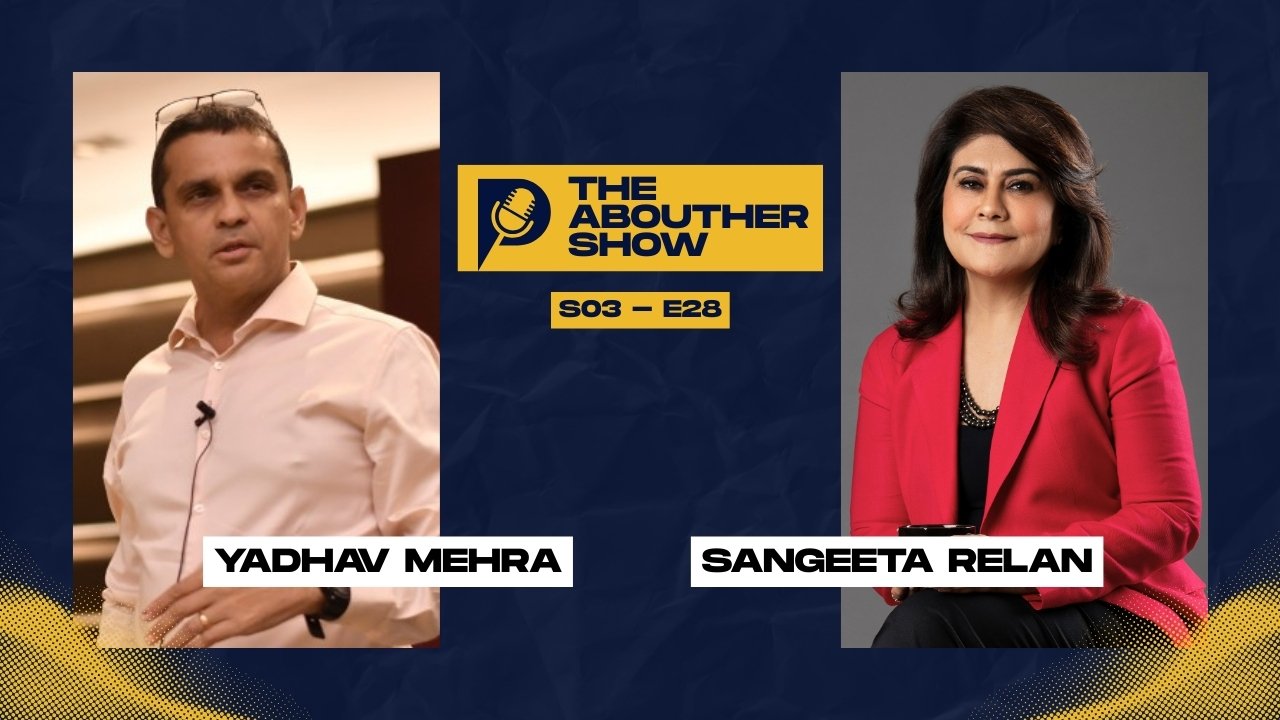“Partner Track”: The Truth on Ambition, the Boys’ Club, and the Cost of Playing Nice
Ever wonder what it’s like to be driven, female, and of immigrant descent in the ruthless universe of Corporate America? Partner Track gives you a front-row seat. Arden Cho, aka Ingrid Yun, isn’t just a character; she is a top lawyer at the prestigious Parsons Valentine law firm, navigating the invisible minefield of a male-dominated firm while juggling performance pressure, cultural expectations, and the personal toll of high-stakes work.
Corporate America Isn’t for the Faint of Heart
Ingrid’s world is all sleek offices, glass walls, and those daily murmurs of “Do you belong here? Will your sacrifices ever pay off?” Well, minor mistakes are amplified, and wins barely register. You’re either in, or invisible. This isn’t just drama.
Research has shown that Asian American women face some of the steepest barriers to leadership in the U.S., not because of a lack of skill, but systemic bias. Ingrid embodies the “insider-outsider paradox.”
Not Just About Gender
The show smartly reminds viewers that exclusion isn’t just a woman’s problem. Ingrid works alongside a Black gay lawyer (Tyler Robinson, played by Bradley Gibson) who faces his battles with acceptance and microaggressions. Bias in corporate America is intersectional: anyone outside the default mold (straight white men) learns quickly that competence alone doesn’t guarantee belonging.
The Cost of Climbing
Watching Ingrid hustle is exhausting. She’s memorising case law, prepping contracts, and calculating how much energy she can give without burning out. Romantic relationships? Downtime? Forget about it, as she said, she will “after making partner.”
Also Read: 5 Ways “Workin’ Moms” Can Find Real Work-Life Harmony
The Boys’ Club: Where Merit Isn’t Enough
Promotions aren’t always about talent. They’re about who you know and who you hang out with after work. Ingrid sees it firsthand. Subtle slights, whispered inappropriate “jokes,” and the constant need to demonstrate her value… that’s the culture.
Many, like Ingrid, quietly tolerate these borderline discriminatory remarks, especially when they come from high-performing “golden boys” or “rainmakers”, because confronting them can feel like professional suicide. The silence isn’t just a matter of self-preservation; it also highlights a complicity and the hush-hush hypocrisy running deep through organizations.
Management often responds with a slap on the wrist and some training, without any real disciplinary action, highlighting a complicity that protects revenue-generating stars over the well-being of employees.
Informal sponsorship often trumps actual performance in career advancement, especially for women and minority employees. In these firms, HR is largely powerless with no real authority.
The Complexity of Solidarity
Here’s a twist: the show also highlights that solidarity isn’t automatic, even among colleagues of the same ethnicity or gender. The other and only Asian partner has ignored her for fear of amplifying racial speculations, reflecting findings from Harvard Business Review and Catalyst that minority employees often face tension and limited peer support as everyone fights for scarce sponsorship and visibility. Ingrid’s struggle is woven into the politics of her peer group.
When DEI Becomes a Performance
One of the sharpest moments is in Season 1, Episode 7, when Ingrid is unexpectedly presented with the “Outstanding Achievement Award For Diversity, Equity, and Inclusion” during a company fundraising gala for underprivileged children in New York. On the surface, it looks genuine. But the celebration feels hollow when she is “forced” to read the HR pre-written speech on the teleprompter, used as a cover-up to the recent racial misconduct by throwing buzzwords about “representation” and “inclusion.”
Ingrid smiled and played along, while everyone around her applauded the firm’s progressive image. We have seen it before, and Partner Track captures our reality, which is full of hypocrisy on steroids. Diversity is often touted as a branding tool, and many corporate DEI programs function more as “window dressing” than as effective vehicles for real change.
Partner Track doesn’t miss the irony: Ingrid is a pawn in the very system that refuses to fully let her in.
Immigrant Pressures Intensify the Load
Ingrid’s story resonates deeply with anyone trying to make it, while staying true to one’s cultural identity and integrity. The “immigrant paradox” reflects how first-generation immigrant youth often carry a deep sense of guilt, feeling the weight of their parents’ sacrifices and the obligation to live up to them. For Ingrid, striving for perfection is a survival mechanism, instilled by her parents.
Also Read: Hold Your Head High, Woman!
Why Partner Track Resonates
The show works because it paints a reality of bias, office politics, cultural complexity, and personal cost in a way that feels authentic. Ingrid’s empathy, warmth, and intelligence underscore that reaching goals isn’t about suppressing humanity; it’s about figuring out how to embrace them despite the hostility toward the presence of “otherness”.
Let’s stop sugarcoating it… Climbing the corporate ladder isn’t about skill or experience. It’s about negotiating identity, visibility, connection, and recalibrating who you are to fit into a world that wasn’t designed with people like “us” in mind. Partner Track isn’t just a show, it’s a masterclass in the hidden, high-stakes rules of corporate America
Share This On Social
![Sangeeta-Relan-AH-525×410[1]](https://aboutherbysangeeta.com/wp-content/uploads/2024/06/Sangeeta-Relan-AH-525x4101-1.jpeg)
I’m Sangeeta Relan—an educator, writer, podcaster, researcher, and the founder of AboutHer. With over 30 years of experience teaching at the university level, I’ve also journeyed through life as a corporate wife, a mother, and now, a storyteller.

